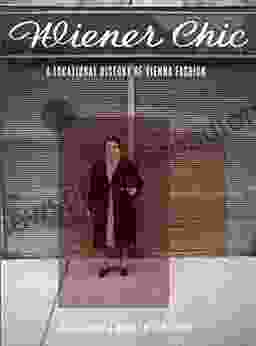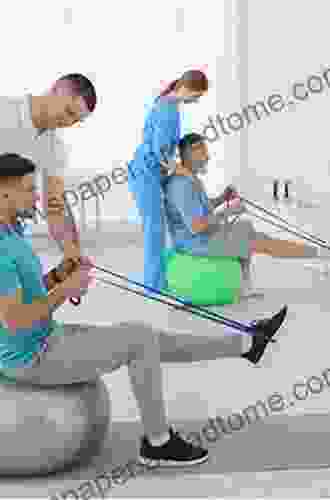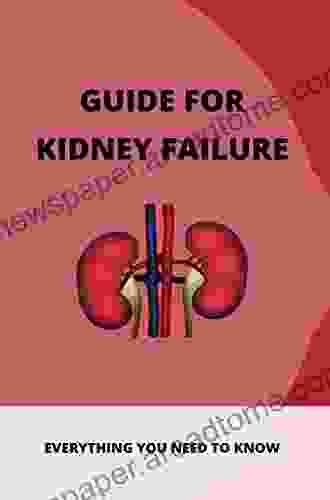Dysphagia Evaluation and Treatment: A Comprehensive Guide to Swallowing Disorders

Dysphagia is a condition that affects the ability to swallow. It can be caused by a variety of factors, including neurological damage, structural abnormalities, and muscle weakness. Dysphagia can range in severity from mild to severe, and it can have a significant impact on a person's quality of life.
The evaluation of dysphagia typically involves a thorough medical history and physical examination. The healthcare professional may also Free Download imaging tests, such as a barium swallow or an endoscopy, to visualize the swallowing mechanism.
5 out of 5
| Language | : | English |
| File size | : | 9699 KB |
| Text-to-Speech | : | Enabled |
| Screen Reader | : | Supported |
| Enhanced typesetting | : | Enabled |
| Print length | : | 302 pages |
The treatment of dysphagia depends on the underlying cause. In some cases, dysphagia can be treated with simple lifestyle changes, such as eating slowly and chewing food thoroughly. In other cases, more intensive treatment, such as speech therapy or surgery, may be necessary.
Causes of Dysphagia
Dysphagia can be caused by a variety of factors, including:
- Neurological damage: Damage to the nerves or muscles that control swallowing can lead to dysphagia. This can occur as a result of a stroke, brain injury, or other neurological condition.
- Structural abnormalities: Abnormalities in the structure of the mouth, throat, or esophagus can also lead to dysphagia. These abnormalities can be congenital (present at birth) or acquired (developed later in life).
- Muscle weakness: Weakness of the muscles that control swallowing can also lead to dysphagia. This can occur as a result of a neuromuscular disFree Download, such as myasthenia gravis, or it can be a side effect of certain medications.
Symptoms of Dysphagia
The symptoms of dysphagia can vary depending on the underlying cause and the severity of the condition. Some common symptoms include:
- Difficulty swallowing food or liquids
- Drooling
- Coughing or choking during swallowing
- Pain or discomfort while swallowing
- Weight loss
- Aspiration (food or liquid entering the lungs)
Diagnosis of Dysphagia
The diagnosis of dysphagia typically involves a thorough medical history and physical examination. The healthcare professional may also Free Download imaging tests, such as a barium swallow or an endoscopy, to visualize the swallowing mechanism.
A barium swallow is a fluoroscopic imaging test that involves swallowing a liquid containing barium sulfate, which coats the lining of the esophagus. This allows the healthcare professional to visualize the swallowing process and identify any structural abnormalities.
An endoscopy is a procedure in which a thin, flexible tube with a camera on the end is inserted into the esophagus. This allows the healthcare professional to visualize the lining of the esophagus and identify any abnormalities.
Treatment of Dysphagia
The treatment of dysphagia depends on the underlying cause. In some cases, dysphagia can be treated with simple lifestyle changes, such as eating slowly and chewing food thoroughly. In other cases, more intensive treatment, such as speech therapy or surgery, may be necessary.
Speech therapy can help to strengthen the muscles that control swallowing and improve coordination of the swallowing process. Surgery may be necessary to correct structural abnormalities or to remove blockages in the esophagus.
Prevention of Dysphagia
There is no sure way to prevent dysphagia, but there are some things that you can do to reduce your risk of developing the condition. These include:
- Eating a healthy diet and maintaining a healthy weight
- Avoiding smoking and excessive alcohol consumption
- Getting regular exercise
- Seeing your healthcare provider for regular checkups
Dysphagia is a condition that can have a significant impact on a person's quality of life. However, with early diagnosis and appropriate treatment, most people with dysphagia can improve their swallowing function and enjoy a full and active life.
5 out of 5
| Language | : | English |
| File size | : | 9699 KB |
| Text-to-Speech | : | Enabled |
| Screen Reader | : | Supported |
| Enhanced typesetting | : | Enabled |
| Print length | : | 302 pages |
Do you want to contribute by writing guest posts on this blog?
Please contact us and send us a resume of previous articles that you have written.
 Book
Book Novel
Novel Page
Page Chapter
Chapter Text
Text Story
Story Genre
Genre Reader
Reader Library
Library Paperback
Paperback E-book
E-book Magazine
Magazine Newspaper
Newspaper Paragraph
Paragraph Sentence
Sentence Bookmark
Bookmark Shelf
Shelf Glossary
Glossary Bibliography
Bibliography Foreword
Foreword Preface
Preface Synopsis
Synopsis Annotation
Annotation Footnote
Footnote Manuscript
Manuscript Scroll
Scroll Codex
Codex Tome
Tome Bestseller
Bestseller Classics
Classics Library card
Library card Narrative
Narrative Biography
Biography Autobiography
Autobiography Memoir
Memoir Reference
Reference Encyclopedia
Encyclopedia Joyce Dalsheim
Joyce Dalsheim Judith Culp
Judith Culp Kathy Bowrey
Kathy Bowrey Julie Thompson
Julie Thompson Marc Schiller
Marc Schiller Jonathan Haidt
Jonathan Haidt Julia Rogers Hamrick
Julia Rogers Hamrick Kristin Andrews
Kristin Andrews Junade Ali
Junade Ali John W Garver
John W Garver Mike Meyers
Mike Meyers John Mcnellis
John Mcnellis Julius M Cruse
Julius M Cruse John Milsom
John Milsom Joseph Benner
Joseph Benner Mulk Raj Anand
Mulk Raj Anand Martin Cohen
Martin Cohen Kathy Aquino
Kathy Aquino Ned Mohan
Ned Mohan Joseph Rael
Joseph Rael
Light bulbAdvertise smarter! Our strategic ad space ensures maximum exposure. Reserve your spot today!

 William ShakespeareExploring the Locational History of Vienna Fashion: A Journey Through Time...
William ShakespeareExploring the Locational History of Vienna Fashion: A Journey Through Time... Richard AdamsFollow ·17.2k
Richard AdamsFollow ·17.2k Marcel ProustFollow ·17.1k
Marcel ProustFollow ·17.1k Harvey HughesFollow ·3.6k
Harvey HughesFollow ·3.6k Ralph Waldo EmersonFollow ·17.7k
Ralph Waldo EmersonFollow ·17.7k Jamie BellFollow ·10.5k
Jamie BellFollow ·10.5k Ike BellFollow ·7.8k
Ike BellFollow ·7.8k Junot DíazFollow ·10.1k
Junot DíazFollow ·10.1k Drew BellFollow ·6.9k
Drew BellFollow ·6.9k

 Sidney Cox
Sidney CoxSpiritualism in the American Civil War
An Unseen Force in the...

 Robbie Carter
Robbie CarterEmpowering Healthcare Professionals: Discover the...
Welcome to the world of...

 Virginia Woolf
Virginia WoolfUnveil the Secrets of Nature's Healing Scents: "Growing...
Embark on an aromatic journey...

 Martin Cox
Martin CoxThe Fat Girl's Guide to Loving Your Body: Empowering...
Alt attribute: Confident plus-size woman...

 Graham Blair
Graham BlairUnlock the Secrets of Vegetables: Their Nutritional Power...
In the realm of culinary delights and...

 H.G. Wells
H.G. WellsStep-by-Step Guide to Crafting Astonishing Kumihimo...
Are you ready to embark on a captivating...
5 out of 5
| Language | : | English |
| File size | : | 9699 KB |
| Text-to-Speech | : | Enabled |
| Screen Reader | : | Supported |
| Enhanced typesetting | : | Enabled |
| Print length | : | 302 pages |










